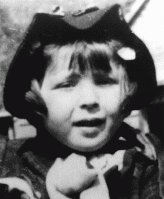You searched for: 澳门威尼斯人网址【手动输入∶___bet126.net___】最新地址请收藏,澳门威尼斯人网址是多少,澳门威尼斯人全部网址,澳门新威尼斯人的网址,澳门威尼斯人网址玩法,澳门威尼斯人网址44,澳门威尼斯人开户网址。
<< Previous | Displaying results 371-380 of 430 for "澳门威尼斯人网址【手动输入∶___bet126.net___】最新地址请收藏,澳门威尼斯人网址是多少,澳门威尼斯人全部网址,澳门新威尼斯人的网址,澳门威尼斯人网址玩法,澳门威尼斯人网址44,澳门威尼斯人开户网址。" | Next >>
-
Charles (Karel) Bruml
ID CardCharles was born to a Jewish family in Prague, the capital of Czechoslovakia. His father owned several shoe factories there. Prague's Jewish minority enjoyed a great deal of cultural freedom because of the new democratic Republic. Though antisemitism still existed in Czechoslovakia, Prague was a relatively tolerant city. 1933-39: Charles' father's business thrived in Prague, and they lived well. Charles enjoyed painting as a child and decided to study at an art school in the city. On the morning of March…
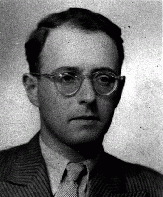
-
Fryda Litwak
ID CardFryda was one of five children born to religious Jewish parents in the industrial city of Lvov. She grew up in the same building as her paternal grandparents. Fryda attended public and private schools in Lvov, and grew up in a non-Jewish neighborhood, speaking Polish, German and Yiddish. 1933-39: When Fryda finished secondary school, she could not go to the university like her older siblings because Polish universities had instituted discriminatory quotas for Jews. In September 1939 the Germans invaded…
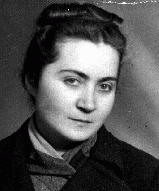
-
Thomas Elek
ID CardThomas was born to a Jewish family who moved to Paris when he was 6. His father's outspoken criticism of the fascist government and his affiliation with the Hungarian Communist Party led to the family's expulsion from Hungary in 1930. With the help of his father, a professor of modern languages, Thomas quickly learned French and excelled in school. He had a special interest in poetry and music. 1933-39: Thomas's father often argued against fascism, and he was greatly disturbed when Hitler became the…
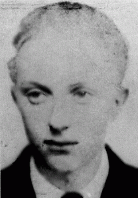
-
Ruth Gabriele Silten
ID CardGabriele was the only child of Jewish parents living in the German capital of Berlin. Her grandfather owned a pharmacy and a pharmaceuticals factory, where Gabriele's father also made his living. 1933-39: In 1938 the Nazis forced Ruth's grandfather to sell his factory and pharmacy for very little money to an "Aryan" German. After that, her father decided they should move to Amsterdam where it was safer for Jews. She was 5 years old and wanted to stay in Berlin. She didn't understand why she had to leave…
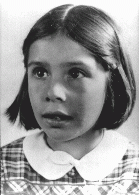
-
Fritz Silten
ID CardFritz was the youngest of two sons born to a Jewish family in the German capital of Berlin. In the late 1920s he earned a doctorate in chemistry and pharmacy. In 1931 he married Ilse Teppich, and in 1933 the couple had a daughter, Gabriele. 1933-39: Fritz worked in his father's pharmacy until 1938, when the Nazis forced them to sell the business for a fraction of its value to an "Aryan" German [Aryanization]. Leaving his parents behind was agonizing, but concern for the safety of his wife and daughter…
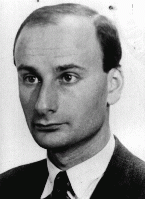
-
Ilse Silten
ID CardIlse, born Ilse Teppich, was the eldest of two daughters born to a Jewish family in the German capital of Berlin. Her father owned a dry cleaning business in the city. When Ilse finished secondary school, she was sent to a finishing school in Switzerland where she studied to be a photographer. In 1931 she married Fritz Silten. 1933-39: In 1933 Ilse gave birth to the couple's only child, a daughter named Gabriele. Five years later, when Fritz's father was forced by the Nazis to sell his business for a…
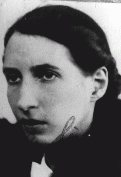
-
Ida Szczupakiewicz
ID CardIda was the oldest of three children born to a Jewish family in northeastern Poland in Malkinia, a town situated on the right bank of the Bug River. Ida's father was a grain merchant and her family lived in the same house that her grandfather had owned. 1933-39: Ida was 9 when Germany invaded Poland. At once her family hid on some nearby farms but a few weeks later they returned home. When their neighbor, her father's best friend, became a Nazi informant, her father had them each pack a small bag--they…
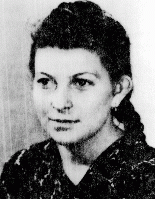
-
Marcu Butnaru
ID CardMarcu was born to Jewish parents in a small, ethnically diverse city in east central Moldavia [in Romania], a region known for its wine. He married at the age of 23, and had a son and a daughter with his wife, Anna. After World War I, Marcu followed in his father's footsteps by going into the wine making business. 1933-39: The price of wine was low due to the worldwide economic depression. Because the quality of Marcu's wine was excellent, however, it still fetched a good price. He spent much of his time…
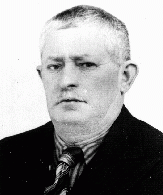
-
Ion Butnaru
ID CardIon was born to Jewish parents in a small, ethnically diverse city in east-central Moldavia [in Romania], a region known for its wine. Husi had a sizable and active Jewish population, which organized literary and artistic festivals and ran a local library. Ion's father was a wine maker and his side of the family had owned vineyards for at least three generations. 1933-39: Ion enjoyed helping his father in the family vineyards. He also did volunteer work at his local Jewish library. When he was 17, his…
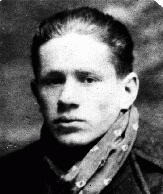
-
Arlette Waldmann
ID CardArlette's Russian-Jewish mother and Romanian-Jewish father had studied medicine together in Paris. After finishing medical school, they married and decided to set up practice in Broncourt, a farming village of 300 inhabitants in northern France. 1933-39: Arlette's father was an old-fashioned doctor who made housecalls, by bicycle at first, then on a motorcycle, and finally, in a car. His patients looked forward to seeing him and held him in high esteem, always offering him coffee and schnapps. Even after…
